SASOL's Global Expansion: Analysing Factors in the Global Environment
VerifiedAdded on 2023/06/18
|13
|715
|89
Report
AI Summary
This report provides an analysis of Sasol, an international integrated chemicals and energy company, within the context of the global business environment. It examines the factors driving globalisation, including international economic integration, market forces, cost considerations, competition, and environmental factors, with a specific focus on the impact of digital technology. The report also delves into international trade law and its implications for Sasol, followed by a PESTEL analysis highlighting political factors such as government subsidies. Furthermore, it discusses the role of supply chain management in optimizing commodity creation and delivery, ultimately contributing to a competitive advantage. The report concludes by emphasizing the diverse factors that influence international commerce and globalisation, noting the advantages and disadvantages of foreign direct investment and international economic integration, and underscoring the impact of digital technologies on the international progress of business firms.
1 out of 13
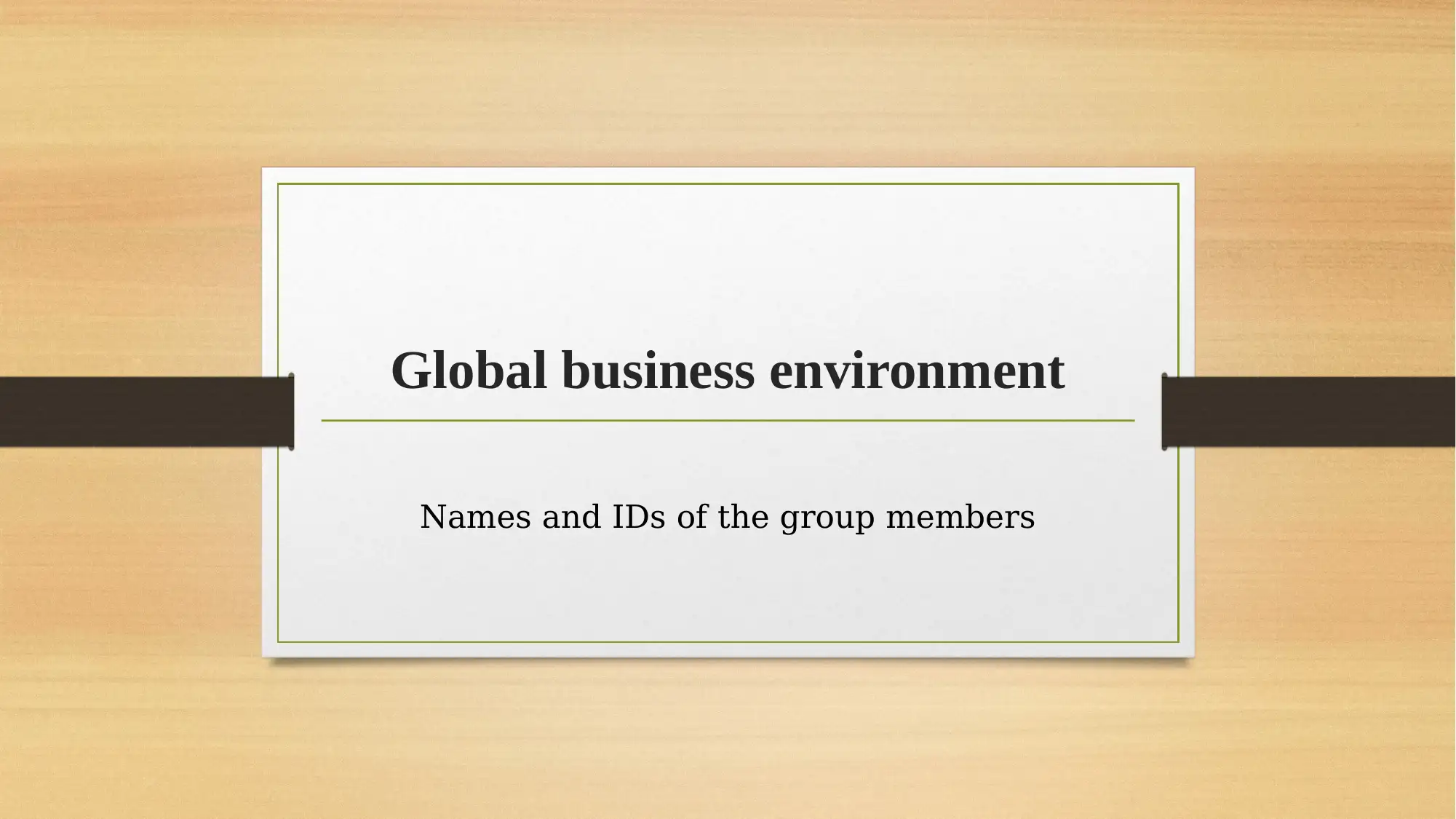
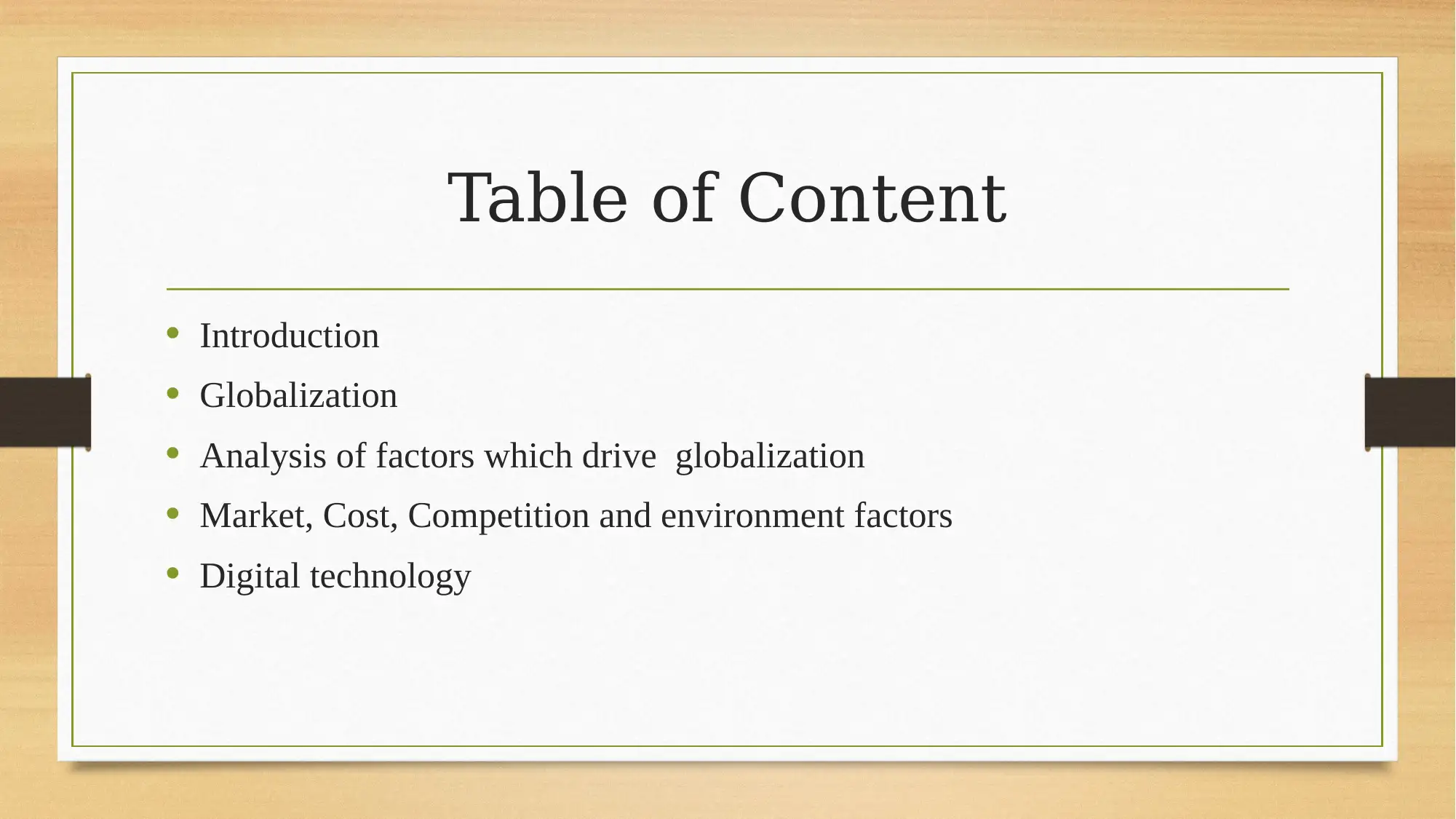
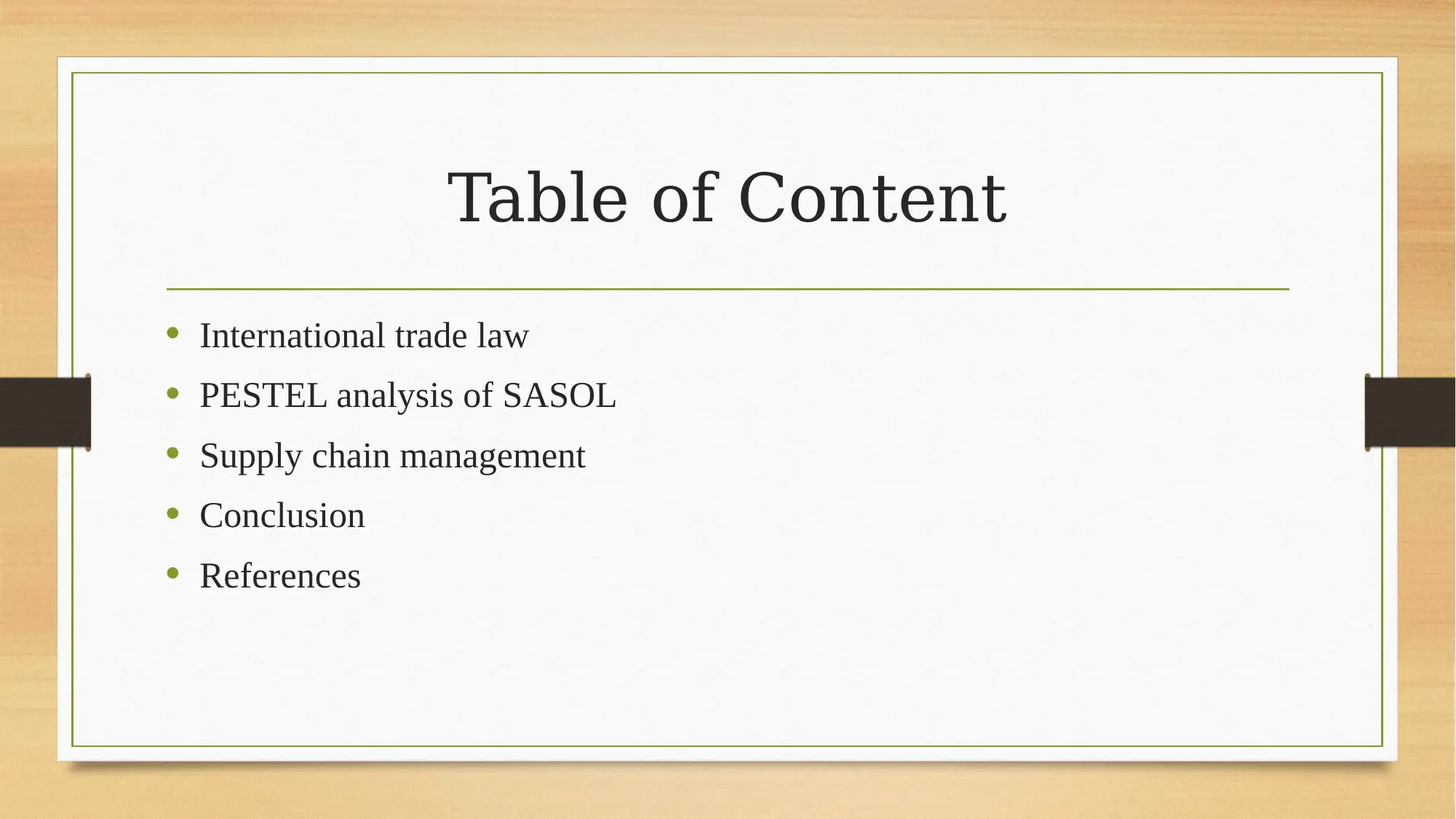

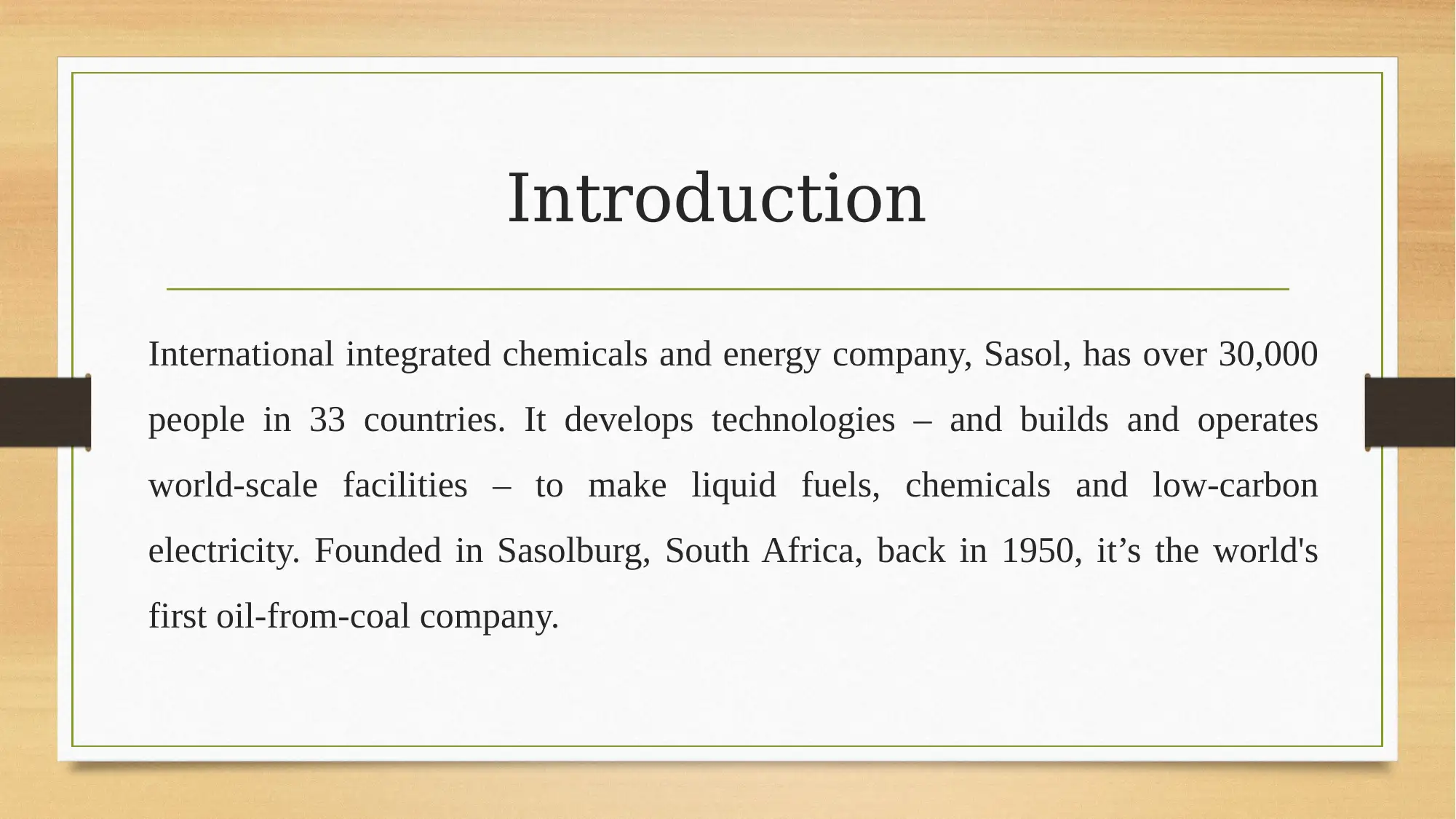
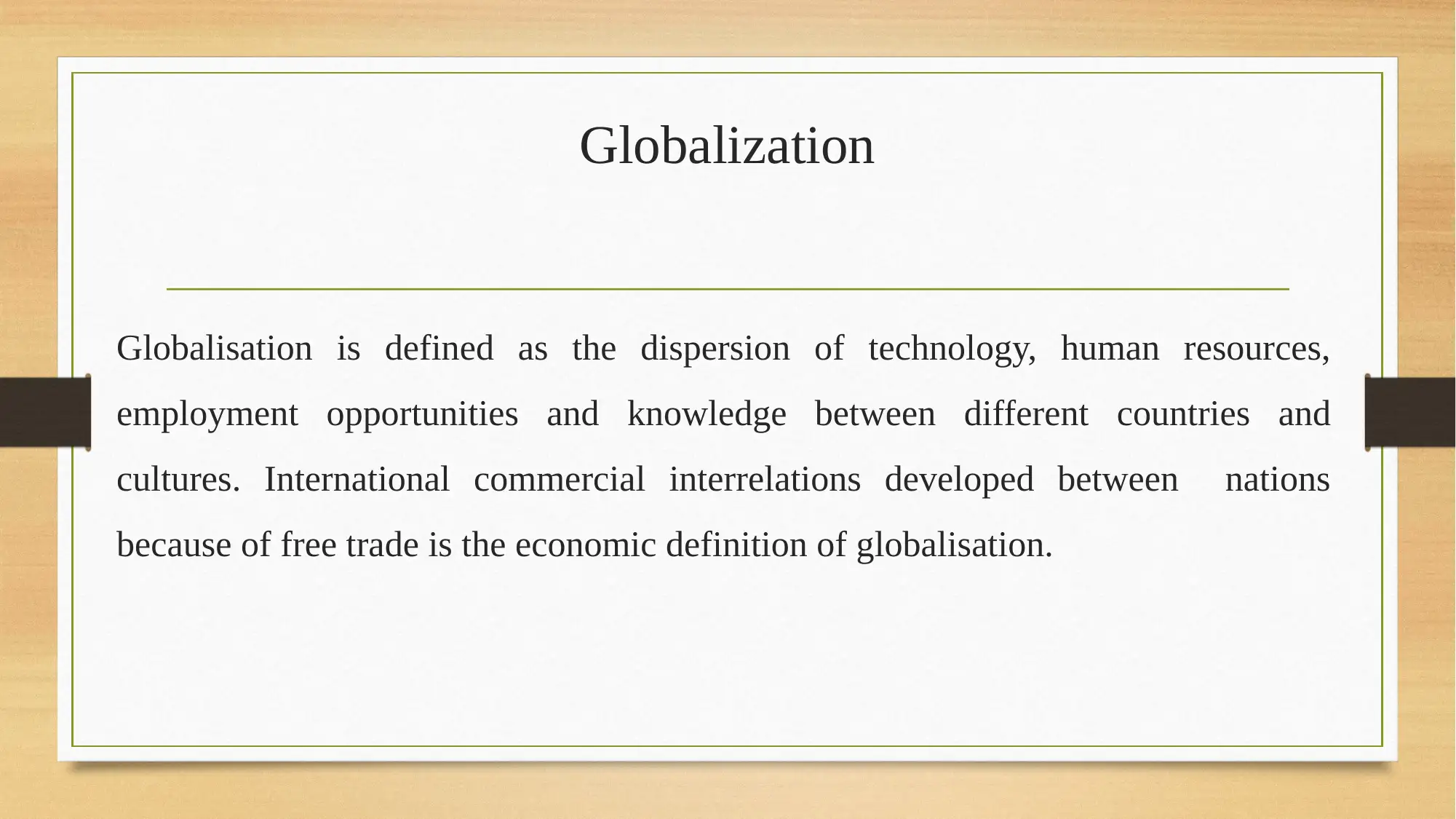
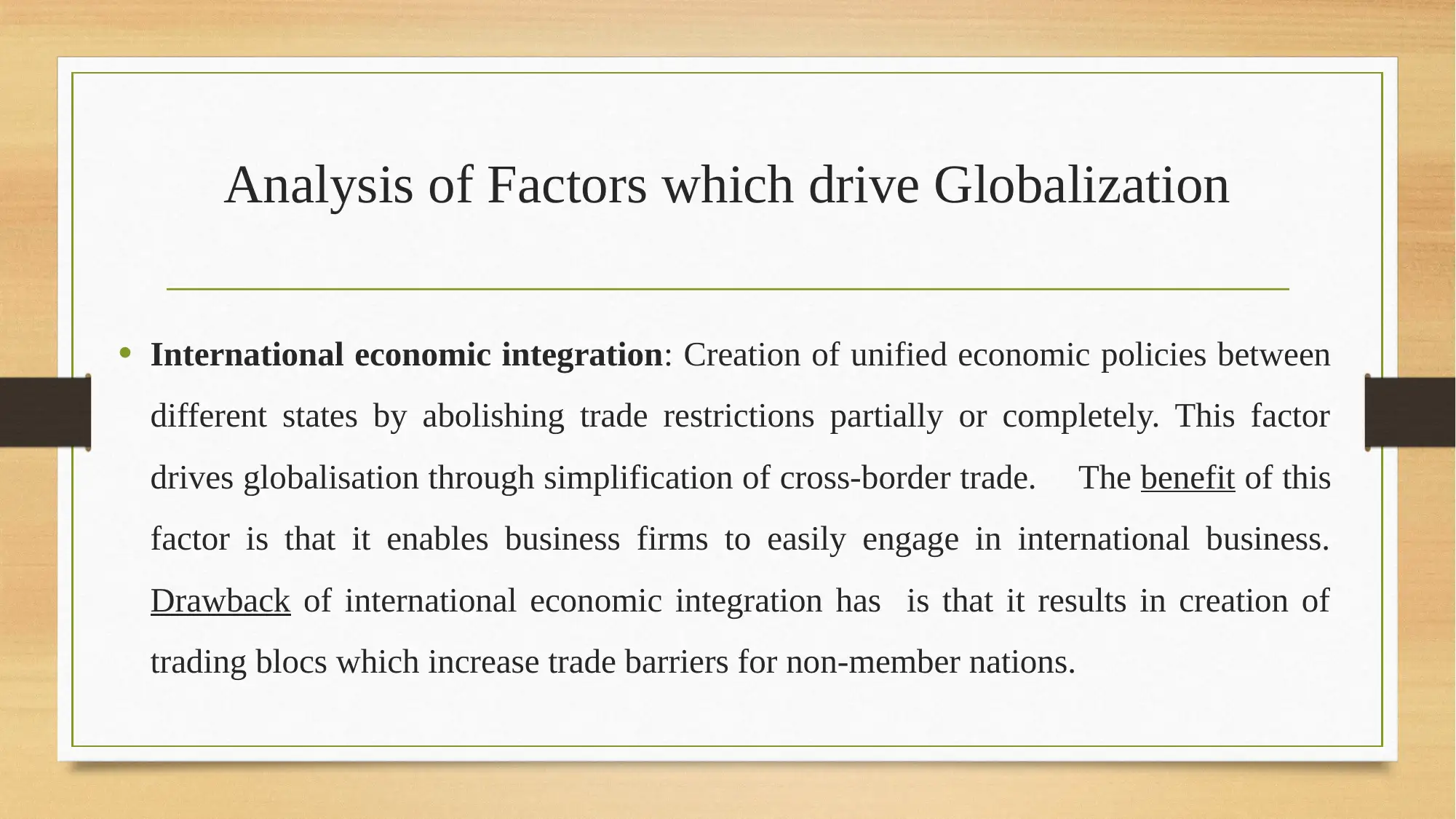
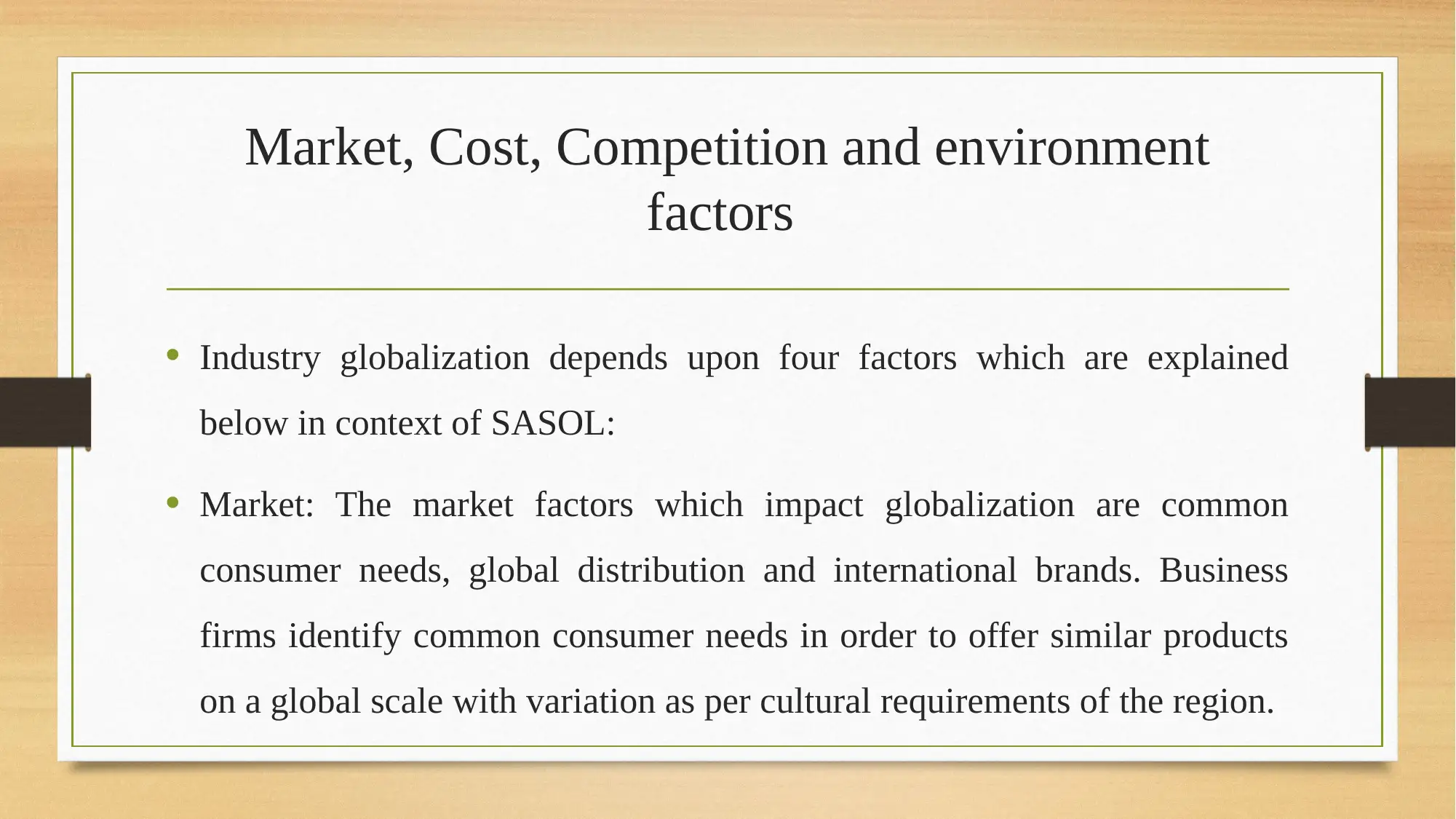
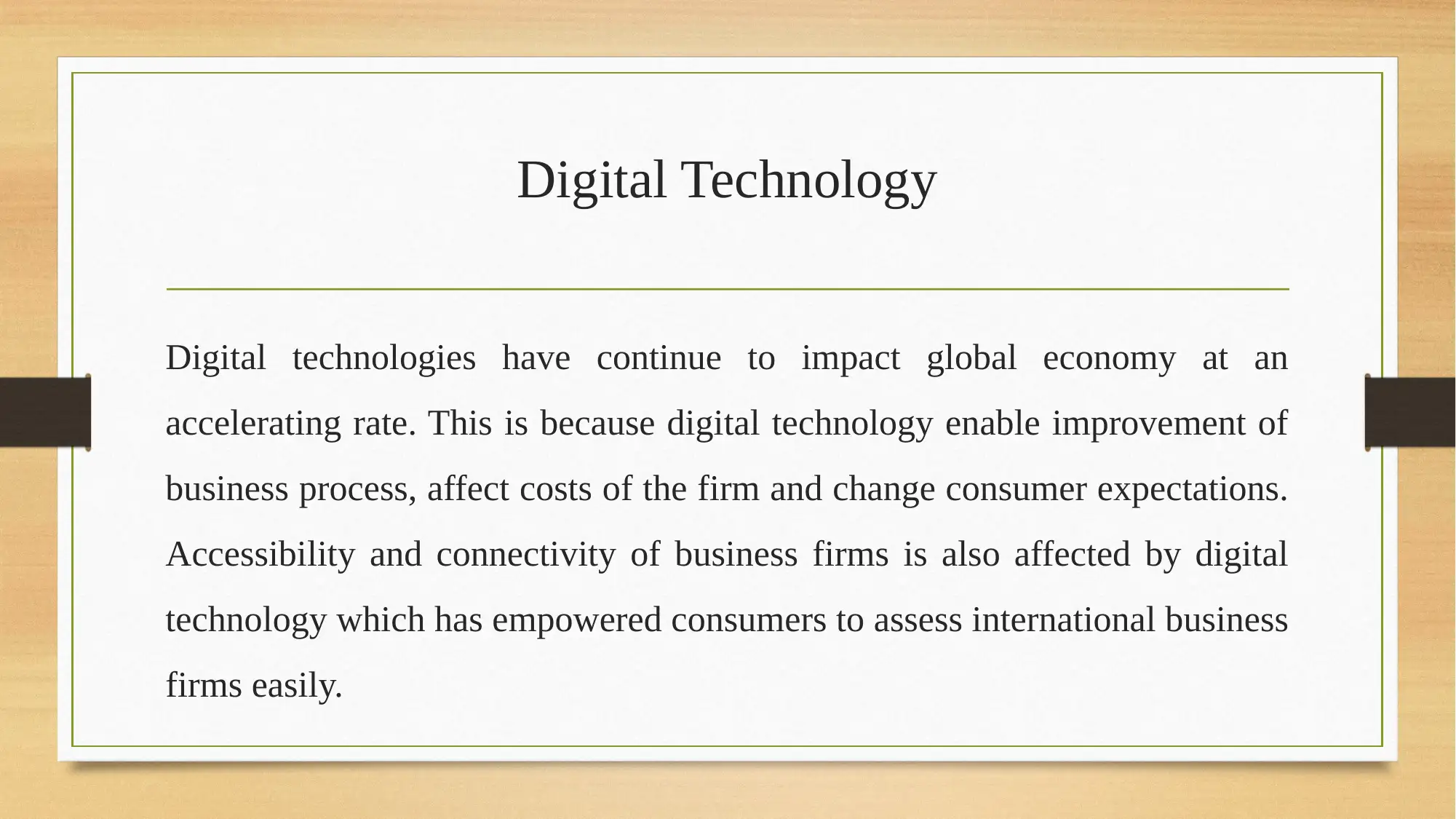
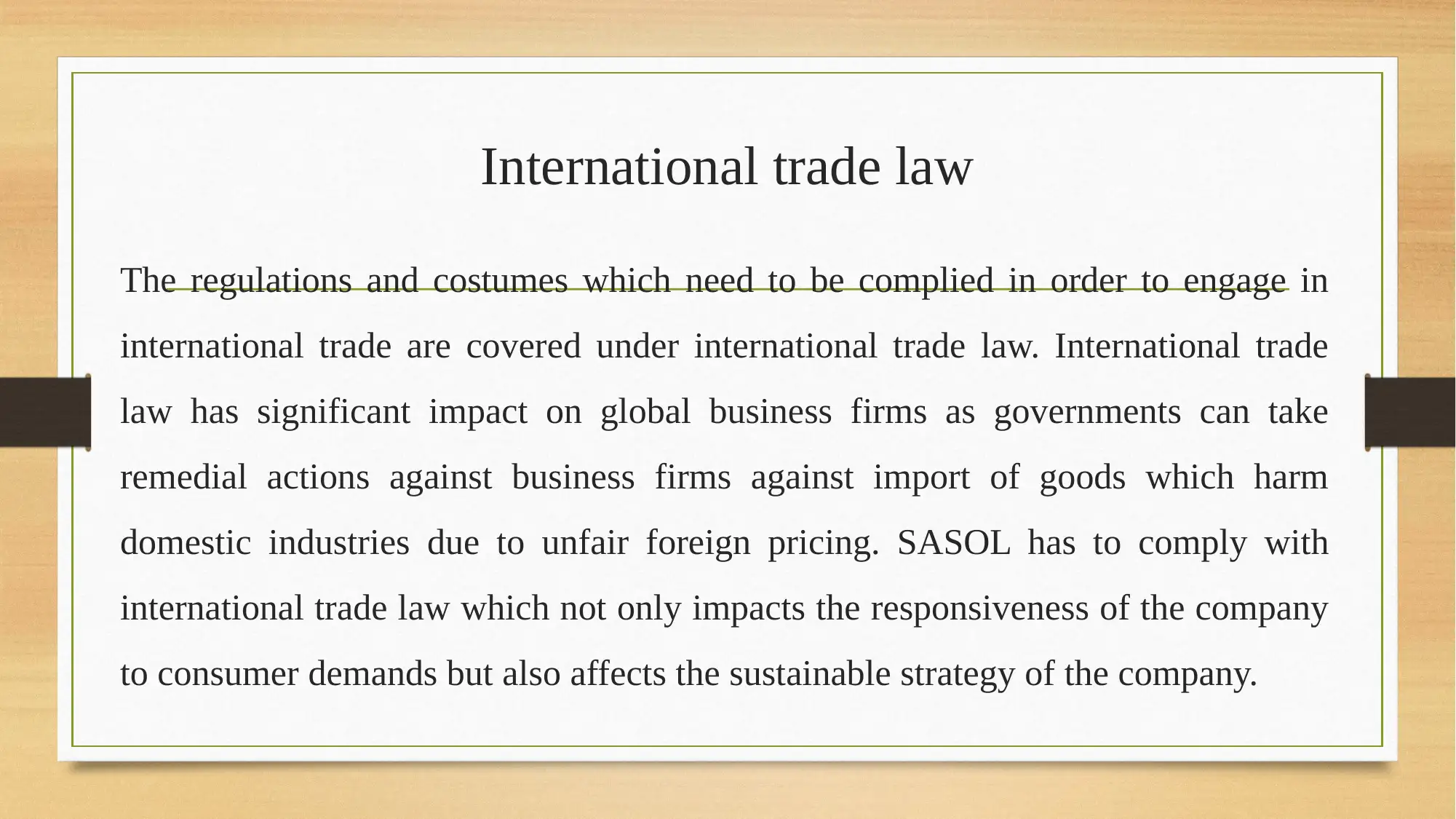
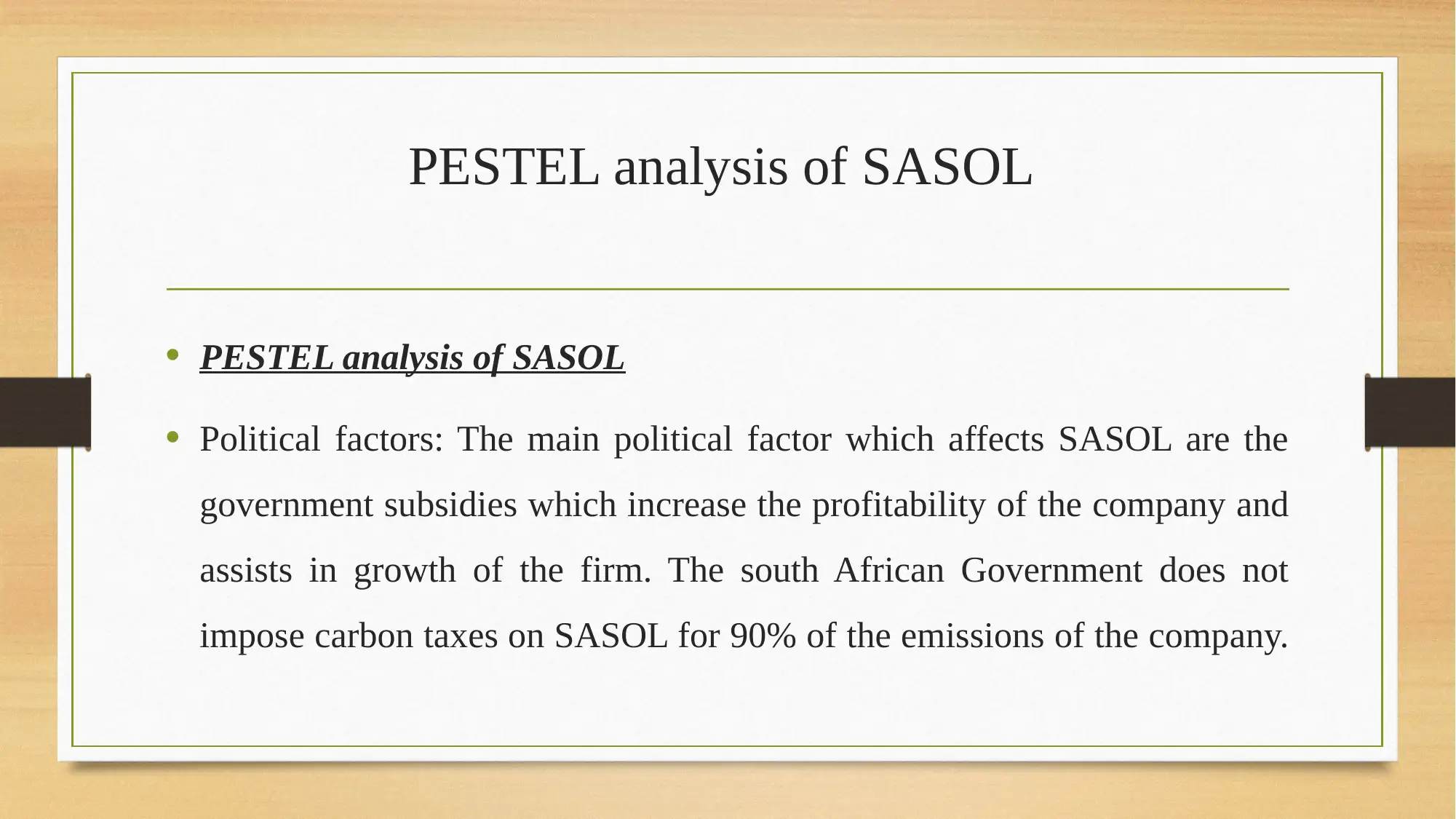
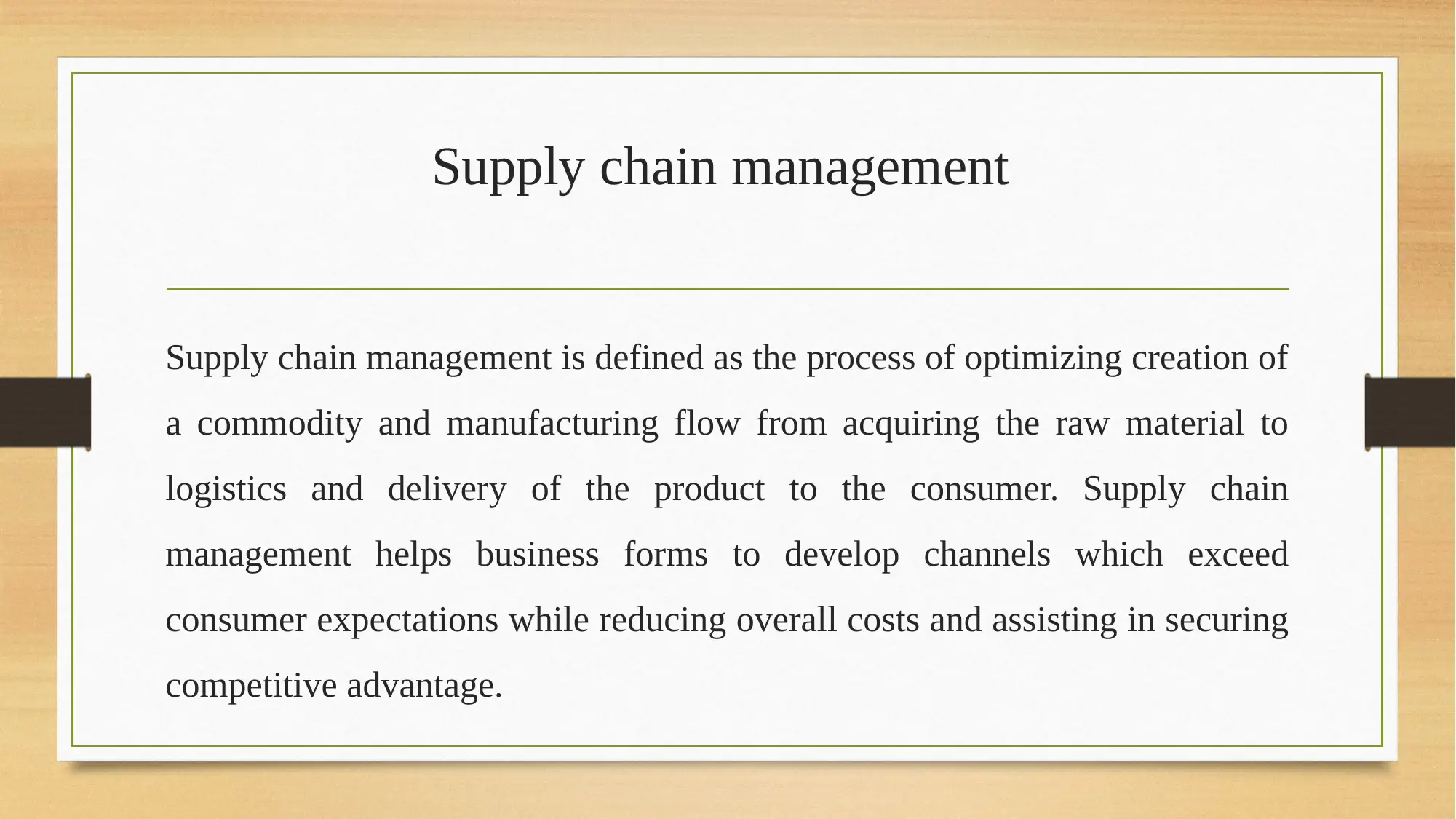
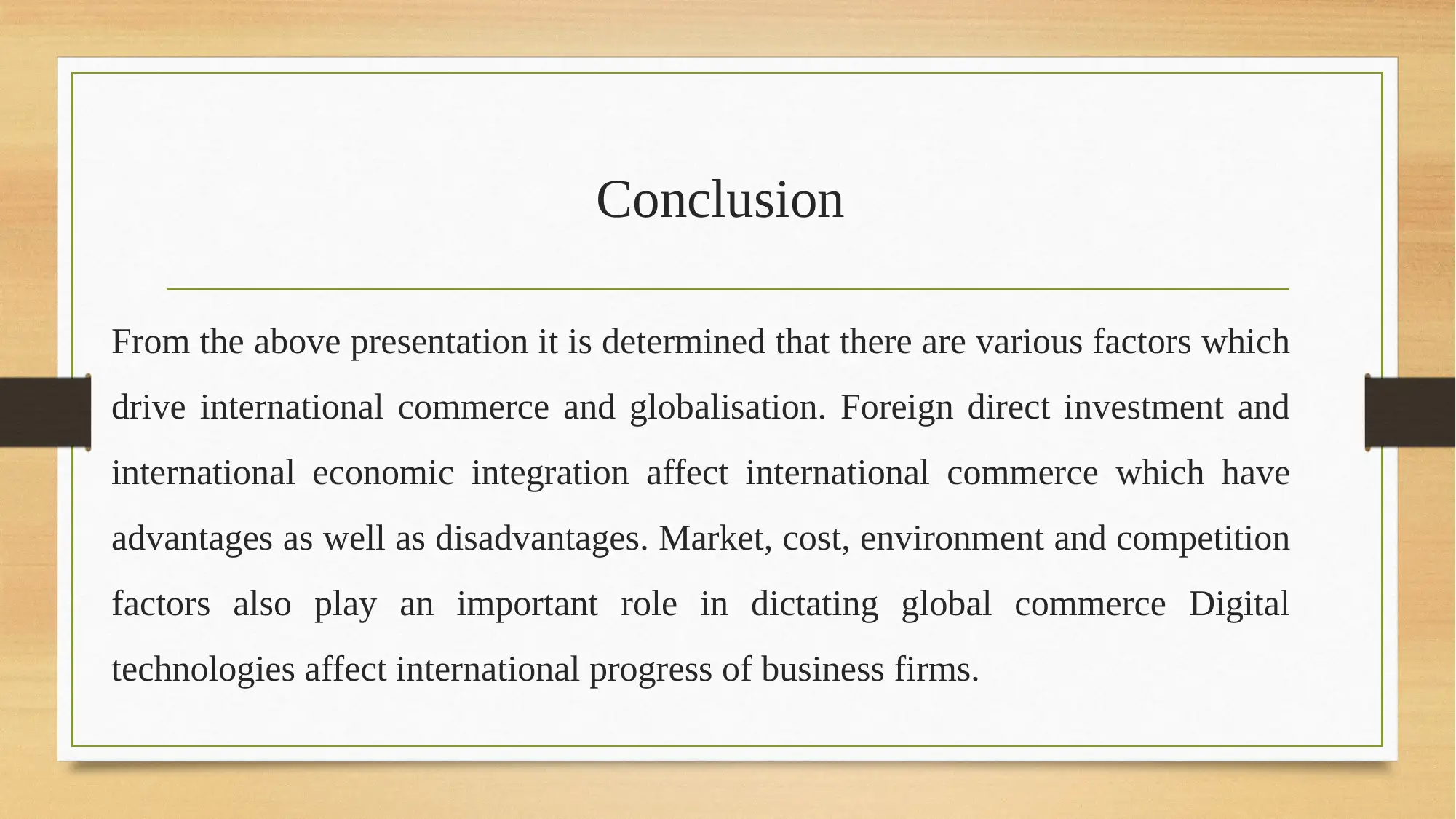



![[object Object]](/_next/static/media/star-bottom.7253800d.svg)